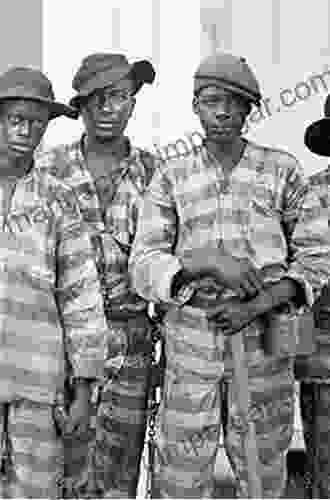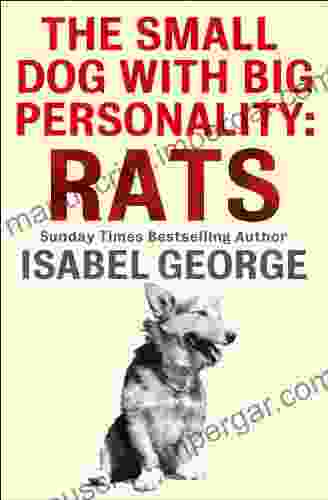The Strange Career of Cold War Rationality

In the vast tapestry of human history, the Cold War stands as an era that ignited both profound fear and fervent hope. Amidst the nuclear standoff and ideological chasm, a peculiar phenomenon emerged: the rise of Cold War rationality.
4.1 out of 5
| Language | : | English |
| File size | : | 11365 KB |
| Text-to-Speech | : | Enabled |
| Enhanced typesetting | : | Enabled |
| Word Wise | : | Enabled |
| Print length | : | 272 pages |
| Lending | : | Enabled |
| Screen Reader | : | Supported |
In his seminal work, "The Strange Career of Cold War Rationality," historian Odd Arne Westad traces the enigmatic trajectory of this concept, from its origins in the atomic bomb to its profound impact on nuclear strategy, political thought, and international relations.
The Birth of Cold War Rationality
The advent of nuclear weapons instilled a chilling recognition of the potential for global annihilation. This stark reality forced policymakers to reconsider traditional notions of statecraft and diplomacy.
In the shadow of the atomic bomb, scholars and policymakers alike sought to develop rational frameworks for understanding and managing nuclear risk. They believed that by applying scientific methods and rigorous analysis, they could mitigate the dangers of nuclear escalation and promote stability.

Rationality in Nuclear Strategy
Cold War rationality found its most profound manifestation in nuclear strategy. Game theory and other quantitative models were employed to analyze nuclear interactions and identify strategies that could deter aggression without triggering a catastrophic war.
The concept of "mutual assured destruction" (MAD) emerged as a cornerstone of Cold War thinking. It posited that both the United States and the Soviet Union possessed the capacity to inflict unacceptable damage on each other, thus deterring a nuclear first strike.
Rationality and Political Thought
Beyond nuclear strategy, Cold War rationality permeated political thought and diplomacy. Analysts sought to identify rational principles that could guide foreign policy decisions and foster international cooperation.
The phrase "rational actor model" gained currency, assuming that nations acted in a calculated and self-interested manner. This view influenced diplomatic negotiations, arms control agreements, and the development of international institutions.

The Ambiguities of Rationality
While Cold War rationality promised to tame the nuclear beast, it also encountered significant challenges. The complexity of international affairs and the irrationality of human behavior often defied rational analysis.
Moreover, the pursuit of rationality could lead to unintended consequences. By focusing on maximizing outcomes, decision-makers sometimes ignored moral and ethical considerations.
The Legacy of Cold War Rationality
The end of the Cold War did not extinguish the legacy of rationality. Its principles continue to shape nuclear strategy, international diplomacy, and global security policy.
однако, the lessons learned from the Cold War have also led to a reassessment of the limits of rationality. The rise of non-state actors, the spread of nuclear technology, and the complexities of globalization necessitate a nuanced approach that balances rationality with a deep understanding of human nature.
"The Strange Career of Cold War Rationality" offers a profound exploration of a pivotal concept that shaped the course of the Cold War and continues to influence international relations today.
By tracing the evolution of Cold War rationality, historian Odd Arne Westad invites us to reflect on the strengths and limitations of rational thinking in the face of global challenges.
As we navigate an increasingly complex and interconnected world, the insights gleaned from this seminal work will continue to guide our efforts to promote peace, stability, and the preservation of human civilization.
4.1 out of 5
| Language | : | English |
| File size | : | 11365 KB |
| Text-to-Speech | : | Enabled |
| Enhanced typesetting | : | Enabled |
| Word Wise | : | Enabled |
| Print length | : | 272 pages |
| Lending | : | Enabled |
| Screen Reader | : | Supported |
Do you want to contribute by writing guest posts on this blog?
Please contact us and send us a resume of previous articles that you have written.
 Book
Book Novel
Novel Page
Page Chapter
Chapter Text
Text Story
Story Genre
Genre Reader
Reader Library
Library Paperback
Paperback E-book
E-book Magazine
Magazine Newspaper
Newspaper Paragraph
Paragraph Sentence
Sentence Bookmark
Bookmark Shelf
Shelf Glossary
Glossary Bibliography
Bibliography Foreword
Foreword Preface
Preface Synopsis
Synopsis Annotation
Annotation Footnote
Footnote Manuscript
Manuscript Scroll
Scroll Codex
Codex Tome
Tome Bestseller
Bestseller Classics
Classics Library card
Library card Narrative
Narrative Biography
Biography Autobiography
Autobiography Memoir
Memoir Reference
Reference Encyclopedia
Encyclopedia Shea Serrano
Shea Serrano Chris Gore
Chris Gore Mark Forstater
Mark Forstater David Dietzler
David Dietzler Harry W Kopp
Harry W Kopp Taffy Cannon
Taffy Cannon John Dunt
John Dunt Charles L Whitfield
Charles L Whitfield Charles P Carlton
Charles P Carlton Christopher Tunnard
Christopher Tunnard Chess Puzzles
Chess Puzzles Chris Mulder
Chris Mulder Frederique Murphy
Frederique Murphy Christian K Buck
Christian K Buck Charlotte Mackenzie
Charlotte Mackenzie Lucy Blake
Lucy Blake Christy Wilson Delk
Christy Wilson Delk Charles Wentworth Upham
Charles Wentworth Upham Hayden J Power
Hayden J Power Christopher Exley
Christopher Exley
Light bulbAdvertise smarter! Our strategic ad space ensures maximum exposure. Reserve your spot today!

 Charles DickensUnlock the Wisdom of Stoicism: A Journey to a Fulfilling Life with "The Good...
Charles DickensUnlock the Wisdom of Stoicism: A Journey to a Fulfilling Life with "The Good...
 Camden MitchellHow It Ends From You to the Universe: A Cosmic Journey That Will Leave You...
Camden MitchellHow It Ends From You to the Universe: A Cosmic Journey That Will Leave You... John UpdikeFollow ·7k
John UpdikeFollow ·7k Edward ReedFollow ·18.5k
Edward ReedFollow ·18.5k Cooper BellFollow ·17k
Cooper BellFollow ·17k Reed MitchellFollow ·12.9k
Reed MitchellFollow ·12.9k Dan HendersonFollow ·19.7k
Dan HendersonFollow ·19.7k Foster HayesFollow ·3k
Foster HayesFollow ·3k Gene PowellFollow ·11.3k
Gene PowellFollow ·11.3k Dallas TurnerFollow ·13.5k
Dallas TurnerFollow ·13.5k

 E.E. Cummings
E.E. CummingsOne Man's Story of What It Meant to be Pj
In the tapestry of life,...

 Caleb Long
Caleb LongPattern Theory in Video Keno: Unveiling the Art of...
Embark on an enlightening journey into the...

 Douglas Adams
Douglas AdamsUnveiling the Diplomatic Landscape: The Ottoman Empire,...
Delving into the History...

 Terry Bell
Terry BellThere Still Is No Off Season: Embracing Year-Round...
In a world consumed by routine and the allure...

 Ibrahim Blair
Ibrahim BlairBrain Teasers Games and Puzzles: Exercise Your Mind with...
Prepare to embark on a captivating journey...
4.1 out of 5
| Language | : | English |
| File size | : | 11365 KB |
| Text-to-Speech | : | Enabled |
| Enhanced typesetting | : | Enabled |
| Word Wise | : | Enabled |
| Print length | : | 272 pages |
| Lending | : | Enabled |
| Screen Reader | : | Supported |










